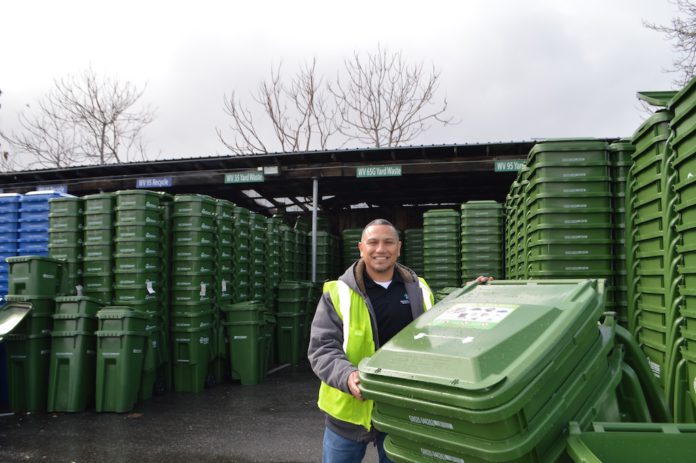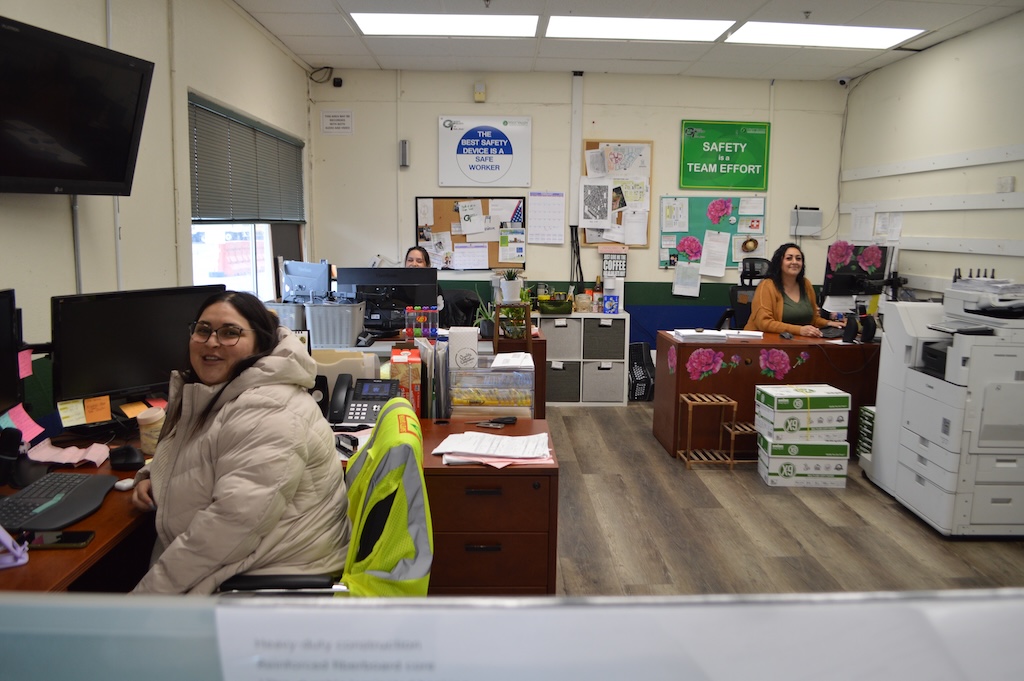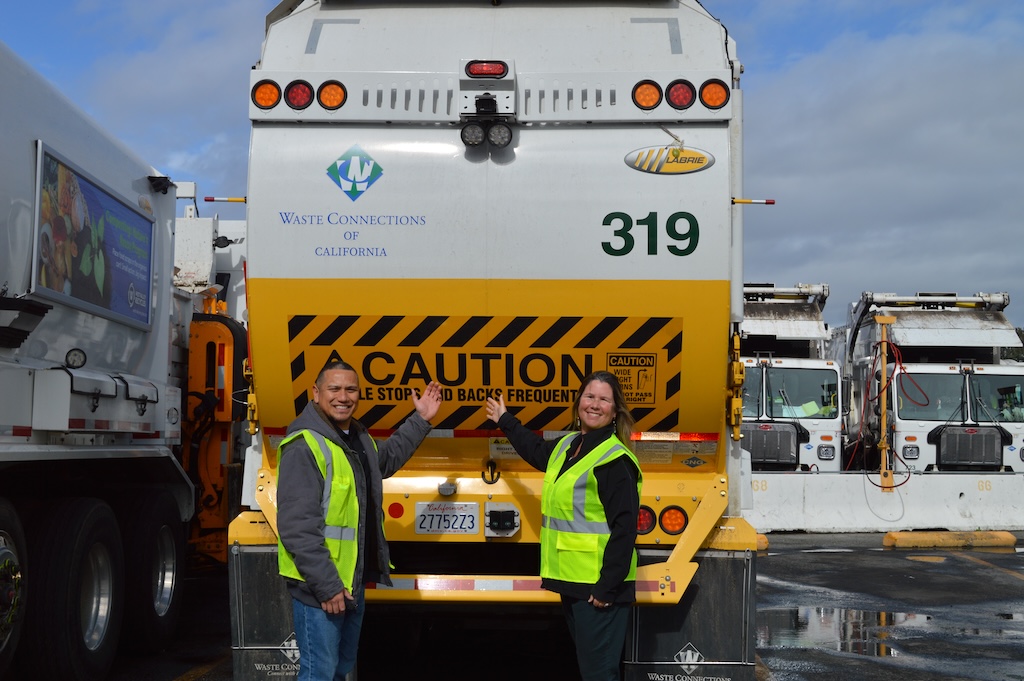
“One man’s rubbish may be another man’s treasure.” —Hector Urquhart
West Valley Recycles (WVR) has an outreach team to help us learn to recycle correctly.
Forget what you knew about recycling guidelines.
Things have changed, and we have new laws to ensure we recycle in the most efficient manner.
Better Sorting
I had the good providence of meeting Weslie McConkey, an outreach manager for WVR, at the Los Gatos Chamber of Commerce office a few weeks ago. As part of her outreach, she invited me down to “The Yard.” The yard is where our dump trucks—correction, our recycling trucks—go after they have emptied our curbside carts. I quickly accepted her invitation; I wanted to know where my disposables go in those huge machines. WVR handles recyclables from Los Gatos, Monte Sereno, Saratoga and Campbell. I would soon learn where all of the recyclables end up.
Arriving at the WVR Oakland Road site, I met Bay Area Outreach Manager Andy Buck. I was about to learn that recycling has changed and will continue to do so. It’s fluid. Recycling systems change, as scientists develop materials that will decompose easier and are assimilated back into nature more efficiently. This is as we humans learn how to lessen the damages that our lifestyles are doing to Earth.
To expedite things—and to keep materials separate—three different trucks pick up from our three curbside bins. This makes for various times that residential pick-ups occur, as each truck will fill up prior to returning to the yard. These trucks run on compressed natural gas.
The very good news is that the lids of new bins have instructions on them for what to place where. This is meant to help keep organics out of our landfills. By the way, doggy poop bags go in the landfill bin, as do diapers—but bones are considered organics.

Diversion Focus
We now know that organics (aka compostable materials) decomposing in a landfill create methane, the greenhouse gas that is not good for our planet. Today, organics go into the organic green bin. “From organics, a finished compostable product can be achieved and then added into the soil that will make it healthier,” Buck explained. “If we do not put this back into the soil, our crops are not as healthy. Bamboo and palm fronds are not considered organic as they are very difficult to break down; they are very hearty, and at this time these must go into the landfill.”
Buck went on, “No one really wants a plastic recycling processing facility in their backyard. A lot of plastics do have to go to another solution overseas, not all. And fiber, most overseas markets dominate this but there are a lot of domestic options available as well. An American consumes a credit card-size amount of plastic per week.” There are new plastics that biodegrade differently and may require different recycling techniques.
Batteries & Oil
A single battery that has not been correctly recycled may and can cause wildfires. “The most common cause of a recycle fire is a battery that has been incorrectly discarded,” Buck said. “If batteries are put into the wrong container they could be crushed, exposing the inside flammable part.”
WVR has a solution, as no one wants to start a fire in the recycled materials. The company offers household battery recycling bags available. Call 408-283-9250 and get a bag delivered on top of your bin. When you have dead batteries, put them in this bag, zip it, and place it on top of your bin. It really is that easy. Just put your disposable-rechargeable dry cells, A, AA, AAA, B, C, D, 9-volt and button type inside the chartreuse green zip-lock bag. By using this battery bag you will be helping to prevent fires and bin auditors. (Tesla batteries are not accepted.)
Up to three gallons of cooking oil may be placed curbside per week, and there is a special jug that will be provided for this task. You set it next to your recycle cart for collection and an empty jug will be left for you in exchange.

Rule Changes
From CalRecycle: “Senate Bill 1383 requires residents to keep organic materials like food scraps, food-soiled paper and yard trimmings out of the landfill by placing them into your organics cart or bin. Landfilling organics produce methane gas, a significant contributor to climate change. Some businesses will be required to divert edible food to a food recovery service or organization for human consumption.”
Also, as SB1383 requires proper sorting, auditors now randomly select carts to identify improper sorting and provide sorting education. Auditors lift cart lids, inspect contents and record contamination. If you are recycling incorrectly you will be subject to education on how to improve. Sort of like having to stay after school. No one wants this, so get to know how to sort.
Lets Get to the Bottom of This
WVR recycles with GreenWaste San Jose Material Recovery. GreenWaste is on Charles Street in San Jose, and is California’s first high-diversion organic waste processing facility. From here recyclables are separated into individual commodities: cardboard, glass, aluminum and a variety of plastics. Once separated, these materials are baled and sent to processors to produce new products. These processors operate at over 45 tons per hour. This plant will recover up to 85% of the material it processes. You can now wear a sweater made out of recycled plastic bottles.
At GreenWaste Carpet Recycling on Old Bayshore Highway, post consumer carpet, foam padding, commercial broadloom carpet and carpet tiles may be dropped off for recycling.
Also, call WVR customer service (408-283-9250) for details on the Bulky Cleanup Program, no additional cost. It’s a good way to get rid of large unwanted items less than 150 pounds.
Polystyrene (Styrofoam) is not biodegradable and therefore difficult to recycle. I break mine down and use it as drainage for potted plants. This does not belong in the recycling or compost bins.
For a complete list of where to put organics, recyclable and landfill items, visit westvalleyrecycles.com.
*The list of communities served by WVR has been updated to reflect current information. And the article now states that bones go with organics.









